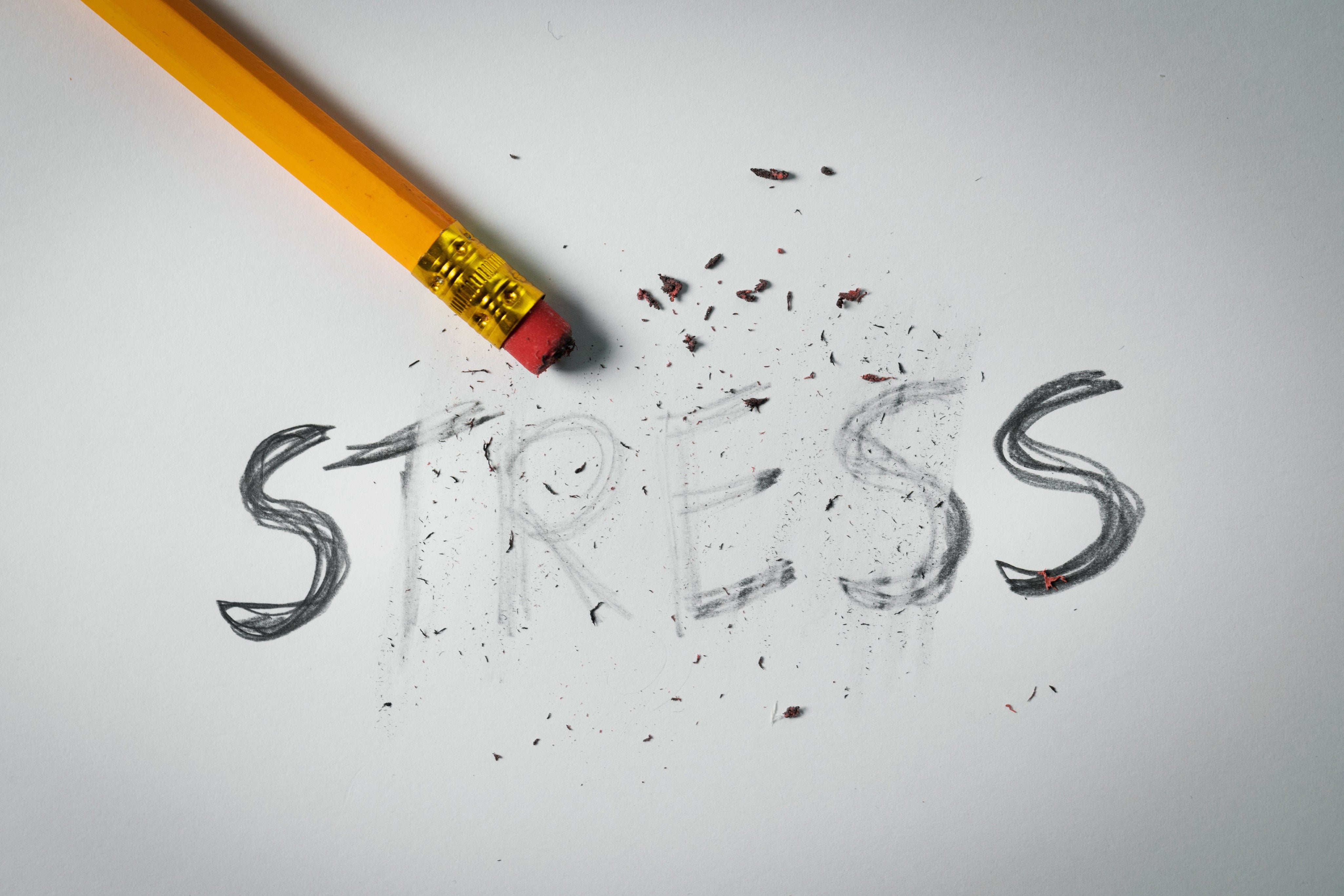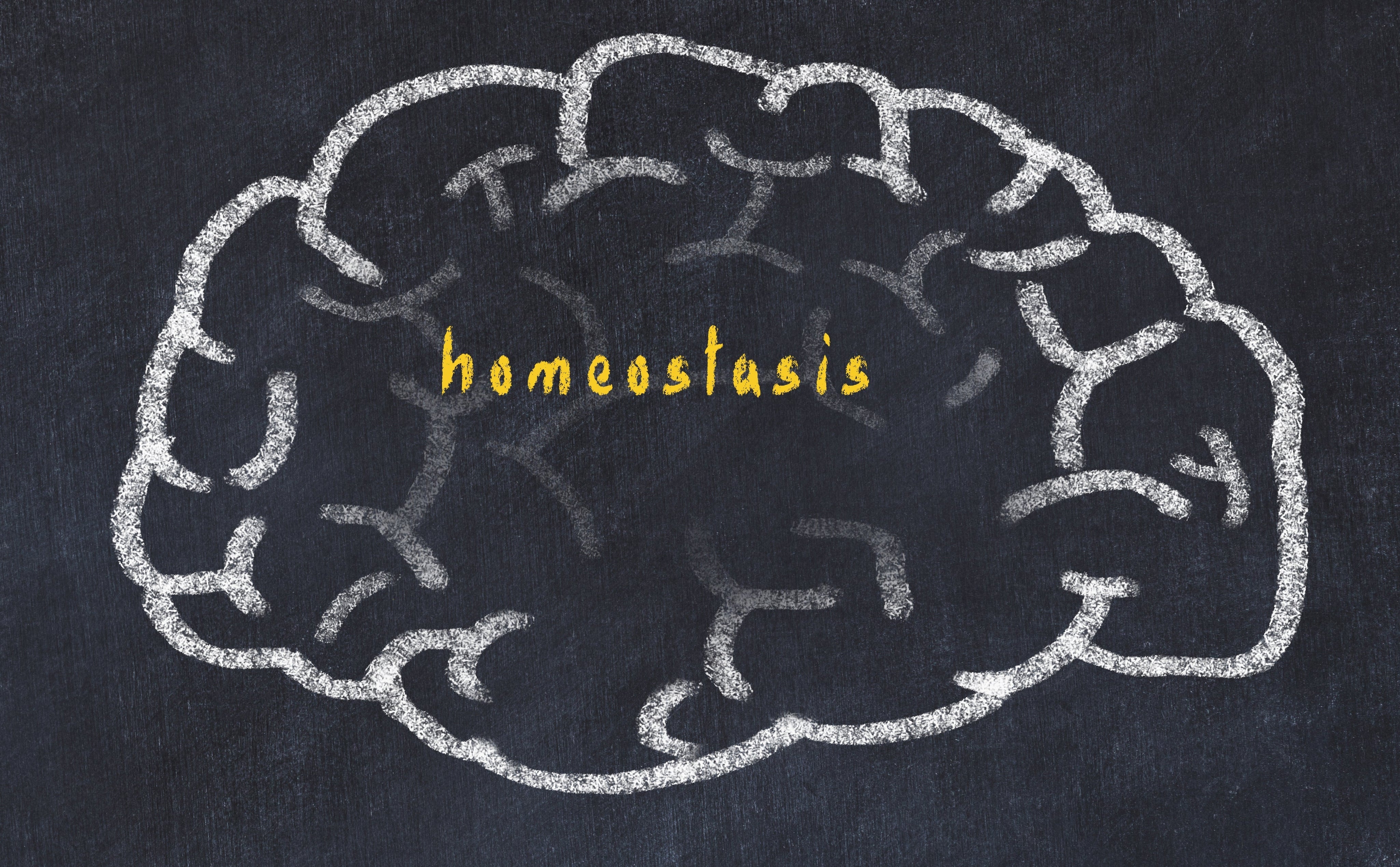Holiday stress, family stress, job stress, relationship stress - there are so many factors that can cause stress in our lives. However, did you know that stress is your body’s attempt to protect you and process change? While it can feel overwhelming, experiencing some stress can be healthy - as long as you get time to rest and reset.
Stressful Definition

The Cleveland Clinic will define stress as the body reacting to perceived change. This might seem different from the common perception, which more often views “being stressed” as having an adverse reaction to challenging events. However, while stress may seem like it can be used interchangeably with words like “frustration” or “anxiety,” it’s so much more in reality.
Even though we often think of stress as something we want to avoid, stress is actually a natural reaction while the body adjusts to changing situations. Even happy or positive developments, like moving to a new home or starting a new job, can cause stress.
We experience stress physically, emotionally, and mentally. The body is designed to use chemical reactions to try to keep us alert and keep us safe. However, stress becomes a problem when it’s relentless or unceasing, or disproportionate when we process neutral experiences or thoughts as threats and experience stress because of them.
Forms of Stress
The body and brain are incredibly powerful processing systems, but they can’t always differentiate between real, external stress factors, and perceived non-life-threatening stressors. In response to both kinds of stimuli, the brain will flood the body with chemicals like adrenaline, cortisol, and noradrenaline, entering the “fight or flight” mode that it has determined we need.
Sometimes this system can be helpful, protecting us from threats and allowing us to survive. Sometimes, especially in modern times, the system is overworked and responds to threats like an interpersonal conflict or repeated worry with the same life-saving chemicals that it thinks we need to escape a saber-toothed tiger or jump out of the way of a speeding car.
What Are the Types of Stress?
There are essentially three forms of stress that a person might experience. These different types of stress can feel similar at first but are distinguished by how intensely and for how long they may affect the brain and body. The three stress categories are:
Acute Stress
Acute stress is the most common way we experience stress. It’s usually reactive, caused by a situation that has recently occurred or is upcoming. For instance, an argument that you just had, or a looming deadline, can be an acute stressor. Most often, when the situation changes or your thinking about the situation subsides, the acute stress will as well.
Some side effects of acute stress are:
- Short-term mood changes, like experiencing irritability, anxiety, anger, or depression
- Bodily tension, like headache, jaw pain, back pain, an upset stomach, bowel problems, or heartburn
- Elevated blood pressure, rapid heartbeat, sweating, sleep problems
Episodic Acute Stress
Someone who undergoes acute stress without respite or who has frequent stressors in their life might experience episodic acute stress. Episodic acute stress may feel like being constantly in a state of crisis or suffering from unceasing worry. It also comes with a heightened risk of health problems like high blood pressure, irritable bowel syndrome, and sleep disorders.
Some symptoms of episodic acute stress:
- Emotional distress, feeling emotional, irritable, impatient, angry, anxious, or depressed
- Compromised learning abilities, lack of memory or shortened attention span, mental fatigue
- Back pain, jaw pain, gastrointestinal distress, pulled muscles or tendons
- Compromised immune system
- High blood pressure, heart palpitations, dizziness, chest pain, increased risk of heart disease
Chronic Stress
Chronic stress is the most severe and harmful kind of stress. Someone living with chronic stress may not even realize that they are doing so. Some examples of stressors that can cause chronic stress include undergoing trauma, abuse, long term poverty, experiencing lasting dysfunctional dynamics, or having aversive experiences in childhood.
Chronic stress happens when stress responses become ingrained into everyday life, pervasively and unremittingly, over a long period of time. Chronic stress carries all the symptoms and health risks of episodic acute stress, only worse since it becomes a pattern and can even begin to resemble a personality trait.
Managing Different Types of Stress
Luckily, there are many ways to begin to manage and even reduce their stress, whether it’s acute, episodic, or chronic.
- Counseling: If you feel your stress is severe, debilitating, long-lasting, or chronic, it’s always best to seek professional help. A therapist can help you identify the patterns or the types of stressors that influence you and help you develop coping mechanisms and an action plan to take control.
- Positive Self-Talk: If you feel like your internal monologue is making you feel worse, then try shifting negative self-talk into positive. When you find yourself thinking, “I can’t do this,” try substituting, “I will do the best I can,” or “I’ve got this.” You can practice positive self-talk at any point throughout your day to make it a habit.
- Do Something You Love: Painting, gardening, connecting with a friend, watching a tv show you like, listening to your favorite music, or making time for other activities that you enjoy can help you relieve many types of stress.
- Try a Supplement: Revive MD’s Calm is formulated with stress-busting L-theanine, magnesium, inositol, and vitamin B12 to help you manage stress, increase productivity, and improve mental clarity.
- Exercise: Incorporating regular exercise into your routine, even just taking a walk outdoors, has been shown to significantly relieve stress. Exercise gives you endorphins, which combat the chemical signals of stress, and help you relax.
Takeaway
The first step to managing stress is recognizing when you’re suffering from it. Take the time to discover how stress manifests for you, whether physical symptoms, reactive thought patterns, coping activities, or something else. The good news is, there are many ways to manage your stress and make your life a little easier, better, kinder, and calmer.
The information being presented in this blog is intended to be used as educational or resource information only. It is not intended to be a substitute for medical advice from your healthcare provider. This content should not be used for the diagnosis or treatment of any medical condition. If you have any questions or concerns about your health, please contact your healthcare provider. You should call 911 for all medical emergencies. Revive MD is not liable for any advice or information provided on this blog, which advice or information is provided on an “as-is” basis, and assumes no liability for diagnosis, treatment, decisions, or actions made in reliance upon any advice or information contained on this blog. No warranties, express or implied, are made on the information that is provided.





 Liver & Detox Support
Liver & Detox Support
 Gut & Digestive Health
Gut & Digestive Health
 Hormones, Stress & Metabolism
Hormones, Stress & Metabolism
 Sleep & Relaxation
Sleep & Relaxation
 Heart, Brain & Immune Health
Heart, Brain & Immune Health


